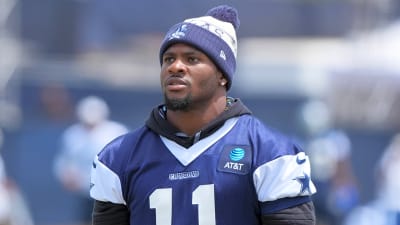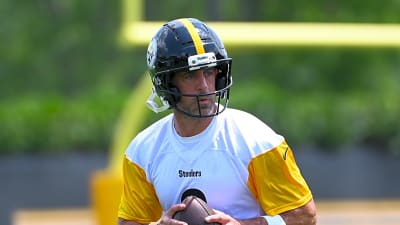
International players have been rare in college basketball — and even more so in North Carolina’s storied program.
That will be changing very soon as an influx of European basketball players into U.S. college programs has risen more so than in previous years, largely due to the financial opportunities presented by Name, Image, and Likeness (NIL) deals that were allowed by the NCAA in 2021.
In the past, many top-tier European prospects chose to stay in their domestic professional leagues because they were already earning salaries. However, the potential to earn a sizable income through NIL endorsements has made NCAA basketball an increasingly attractive option — not only to get paid, but also to adjust to American culture and gain a head start by competing against future NBA talent.
For instance, players like Egor Demin and Kasparas Jakucionis transitioned from elite European clubs—Real Madrid and Barcelona, respectively—to U.S. colleges such as BYU and Illinois last season before entering the draft. Their decisions were influenced by the lucrative NIL deals offered, which in some cases included significant buyout fees as well as endorsement opportunities.
Seeing that it could be a growing trend, head coach Hubert Davis added two European players to North Carolina’s roster this offseason: combo guard Luka Bogavac of Montenegro and forward Henri Veesaar, an Arizona transfer originally from Estonia.
Bogavac is not your typical freshman. He’s old enough to legally drink alcohol in the United States and has already played professional basketball. He competed for SC Derby in the ABA League — which features teams from countries such as Croatia, Serbia and Slovenia — as well as the Prva A Liga, the top-tier league in Montenegro.
While playing for SC Derby last season, averaging nearly 15 points, 3.6 rebounds, 2.3 assists and a steal per game. He also shot 45.1% from the field, 40% on three-point shots and 87% from the free throw line.
Veesaar appeared in all 37 games while making five starts. Veesaar averaged 9.4 points, 5.0 rebounds and 1.1 blocks per game while shooting 59.2% from the floor and 32.7% from behind the arc. He earned All-Big 12 honorable mention honors despite being a bench player.
His numbers improved in conference play, averaging 10.9 points, 5.4 rebounds and 1.5 blocks per game while having 62.6% from the field and shooting 38.7% from the three-point line.
He also was second in offensive rating (133.7), second in two-point field goal percentage (70%), seventh in block percentage (7.3%) and eighth in offensive rebound percentage (12.2%) according to KenPom.
With the additions of both Bogavac and Veesaar, it’s beginning to look like the Tar Heels are starting to dip into the European pool of players as well.
While North Carolina doesn’t have a rich history of producing international talent that doesn’t mean it hasn’t had any.
The first international player to suit up for North Carolina was Randy Wiel, a native of Curaçao in the former Netherlands Antilles. Although he saw limited playing time as a player, Wiel returned to Chapel Hill as an assistant coach under Dean Smith from 1988 to 1993, helping guide the Tar Heels to the 1993 national championship.
He later served as head coach of the Netherlands national team (1991–93), UNC Asheville (1993–96) and Middle Tennessee (1996–2002) before returning to the Netherlands to coach professionally.
So far, three players have earned All-ACC honors: Seve Bucknall (United Kingdom), Serge Zwikker (Netherlands) and Ademola Okulaja (Germany).
Bucknall was a member of Carolina’s program from 1985-89. The Londoner was the first international player to gain success at UNC as he earned second-team All-ACC honors after averaging 13.1 points, 5.3 assists, 4.1 assists and a steal per game his senior season in the 1988-89 season.
Serge Zwikker, a 7-foot-3 center from the Netherlands, was a key member of North Carolina’s Final Four teams in 1995 and 1997. As a senior, he served as a team captain alongside Shammond Williams and helped lead the Tar Heels back to the Final Four. Zwikker earned third-team All-ACC honors after averaging 11.5 points, 8.1 rebounds and 1.7 blocks per game.
Okulaja is the best international player to date. The Nigerian-born German national was a three-year starter at power forward in Chapel Hill where he was a member of Bill Guthridge's successful "six starters" rotation along with Antawn Jamison, Vince Carter, Ed Cota, Shammond Williams and Makhtar N'Diaye.
In his senior season, Okhulaja averaged nearly 14 points, 8.4 rebounds, 2.4 assists and 1.4 steals per game. He also shot 44.2% from the floor and 43.1% on three-point shots.
Okulaja is the first player in Carolina’s history to lead the Tar Heels in scoring, rebounding, three-pointers made and stealsHe helped lead the Tar Heels to two straight Final Four appearances in 1997 and 1998.
With the addition of Bogavac and Veesaar, North Carolina is positioning itself to become a more consistent player in the international recruiting game and are acknowledging that the landscape of college basketball is changing faster than anticipated.
Programs with the infrastructure and brand power to attract international stars—while offering a pathway to the NBA and financial compensation—are now in a prime position to reshape recruiting pipelines.
For a blue blood program like UNC, tapping into the European market could mark the beginning of a new era. It offers the Tar Heels a chance to not only modernize their approach but diversify their roster with players who are more mature than most freshmen because they competed and played with adults who come from all over the continent.
If Bogavac and Veesaar thrive in Chapel Hill, it could pave the way for more top-tier international prospects to don the iconic Carolina Blue uniforms—helping UNC grow its brand across the world.
While North Carolina continues to recruit elite talent across the United States, imagine if the Tar Heels begin consistently landing the top young players from across the pond. That could spell trouble for the rest of the ACC — and the nation.
More must-reads:
- Surprising update emerges about Jayson Tatum's recovery
- Brewers star's injury worse than initially thought
- The '250-strikeout MLB seasons' quiz
Breaking News
Trending News
Customize Your Newsletter
 +
+
Get the latest news and rumors, customized to your favorite sports and teams. Emailed daily. Always free!








